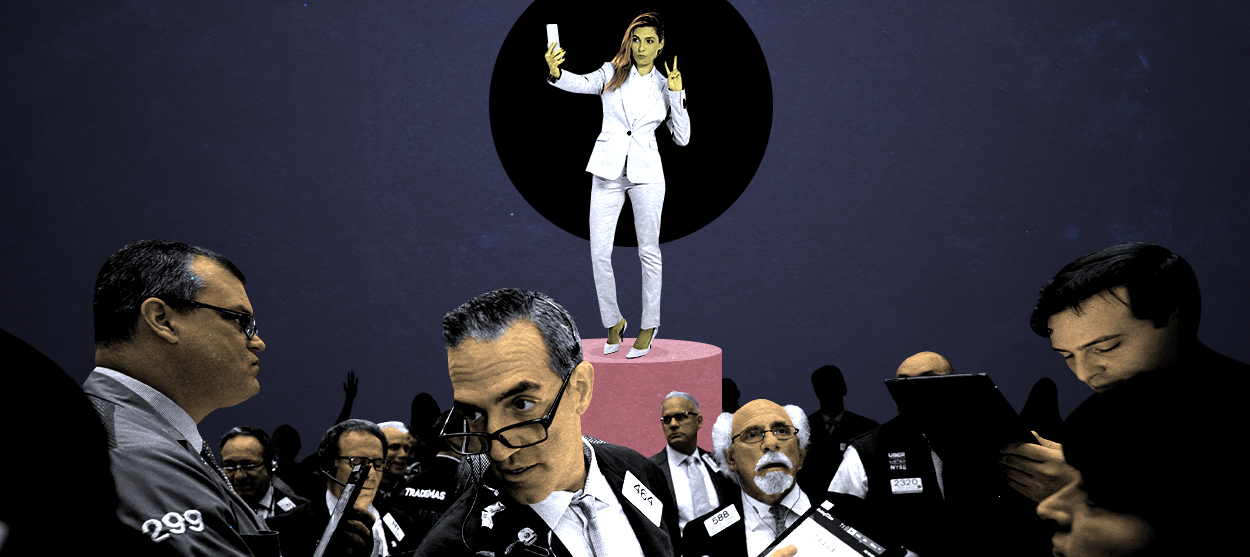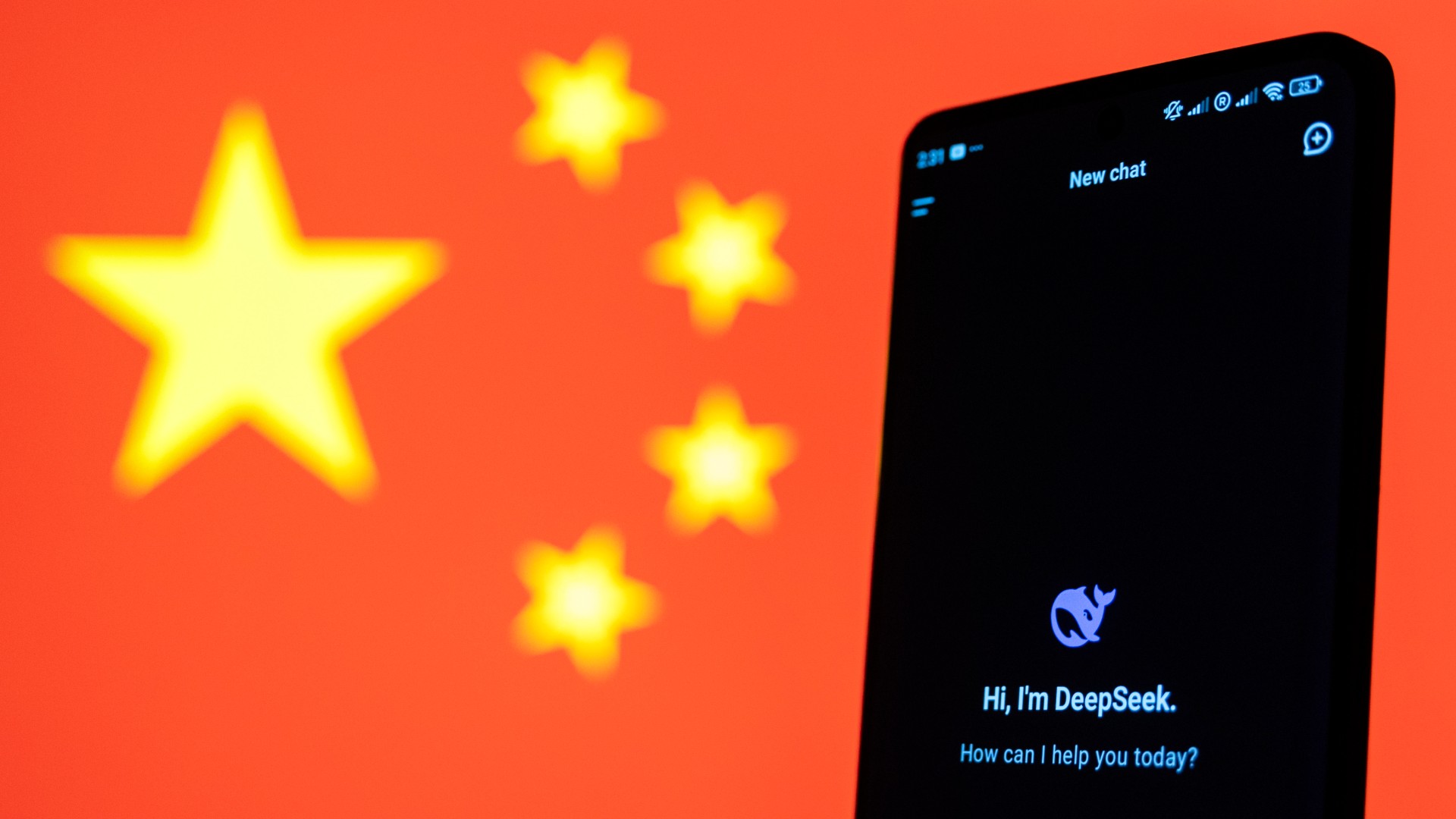The troubling implications of a 'human stock market'
The latest trend in online influencer culture is alarming


A free daily email with the biggest news stories of the day – and the best features from TheWeek.com
You are now subscribed
Your newsletter sign-up was successful
Sponsored content has long been a moneymaker for online influencers. It's pretty simple: Do a little dance video, pose your cute kid in his wardrobe of neutral linens and cashmere, write up a quick caption about how this product, like, totally changed my life, you guys! Get likes; get paid.
But how often can one work oneself up to gush about detergent or protein shakes or a fast-fashion item locked, since the moment of its likely unethical manufacture, in a race of material disintegration against rejection from the whims of style? For the influencer tiring of ads, alternatives have arrived, as New York Times tech reporter Taylor Lorenz documented in a new report Wednesday. Instead of hawking physical products that fans can buy from sponsors or, sometimes, the influencers themselves, a new set of apps sell bits of the influencers' lives. I do not think this is a path we want to tread.
One app the Times story features, operating under the bracing name NewNew, bills itself as a "human stock market." Influencers can poll their fans about what to do in mundane decisions, and fans pay for the privilege of posing their idol. "For example," Lorenz explains, "a creator can use NewNew to post a poll asking which sweater they should wear today, or who they should hang out with and where they should go. Fans purchase voting power on NewNew's platform to participate in the polls, and with enough voting power, they get to watch their favorite influencer live out their wishes, like a real life choose-your-own-adventure game."
The Week
Escape your echo chamber. Get the facts behind the news, plus analysis from multiple perspectives.

Sign up for The Week's Free Newsletters
From our morning news briefing to a weekly Good News Newsletter, get the best of The Week delivered directly to your inbox.
From our morning news briefing to a weekly Good News Newsletter, get the best of The Week delivered directly to your inbox.
The influencers Lorenz interviewed told her they welcomed this product because they found letting a horde of strangers direct their lives "LESS stressful than doing ad deals." One such influencer let his fans decide what game he played; they picked the option he didn't prefer, but he did it anyway. He also let his followers name his hamster. The app's screenshots in its Apple store listing show influencers asking which sneakers to buy, whether to have ice cream or bubble tea, and whether to stay with a hookup or leave him. (In the latter poll, 88 percent voted "break up.")
The Times report also highlights influencer trading cards from a company called Clout Market — think baseball cards, except digital and with slightly pseudonymized names and portraits.
"No, this isn't Black Mirror..." a Clout Market tweet assures. Isn't it, though? Influencers who make money this way would undoubtedly reject the slavery and prostitution comparisons that spring to my mind, and I'll agree they're at least inelegant and overwrought. But I don't think the stock market analogy made by both NewNew and Clout Market is much more flattering.
These apps don't remind me of investing in its basic sense of putting money into a company you believe will be successful because it is doing work people find valuable. It's more like the arcane maneuvers — weird and complicated layers of bets and counter-bets; dicey time-bounded deals that anyone unaccustomed to Wall Street's norms would simply dub "gambling" — that got us into the financial crisis of 2008. The similarity I see isn't in specific mechanisms so much as a generally strange and corrupting atmosphere that leads to perverse incentives for the people involved.
A free daily email with the biggest news stories of the day – and the best features from TheWeek.com
NewNew and Clout Market aren't selling skilled work. You don't buy a painting or an essay or even personal access. You buy a piece — directional or representational — of the person's life. And, as Clout Market's Twitter bio informs, "[t]he more drama, the better." Your trading card could fetch a higher price if more people are talking about you. Fans will be willing to pay more to vote on NewNew if the questions have higher stakes. All things being equal, my guess is the hookup poll would get more votes, and therefore more money, than the query about sneakers.
But we all know most drama isn't usually a good thing, right? Outside of a few major milestones (birth, marriage, various graduations), life typically shouldn't be dramatic. Constant drama is dysfunction. For most people most of the time, the more drama, the worse.
The life of the influencer — particularly the general lifestyle influencer, as opposed to those whose fame is linked to a specific skill, expertise, or cultivated talent — seems to me to be perilous enough for mental, emotional, relational, and spiritual health. For many, I suspect these new earning options will add to those risks. If you fight with your spouse, do you put divorce up for a NewNew poll? What if the horde votes yes? Will your Clout Market value spike if people are gossiping about your breakup? Your estrangement from your parents? Your self-harm?
Clout Market only has 200 followers on Twitter as of this writing, and its store so far records zero sales. New York Times coverage may be the highest this concept ever flies. But NewNew has thousands of positive user reviews, with recent entries declaring it "like magic" and "rly fun."
"Have never seen something like this where you can make ppl do things!!" one review gushes. Maybe that's because you shouldn't?
Bonnie Kristian was a deputy editor and acting editor-in-chief of TheWeek.com. She is a columnist at Christianity Today and author of Untrustworthy: The Knowledge Crisis Breaking Our Brains, Polluting Our Politics, and Corrupting Christian Community (forthcoming 2022) and A Flexible Faith: Rethinking What It Means to Follow Jesus Today (2018). Her writing has also appeared at Time Magazine, CNN, USA Today, Newsweek, the Los Angeles Times, and The American Conservative, among other outlets.
-
 Local elections 2026: where are they and who is expected to win?
Local elections 2026: where are they and who is expected to win?The Explainer Labour is braced for heavy losses and U-turn on postponing some council elections hasn’t helped the party’s prospects
-
 6 of the world’s most accessible destinations
6 of the world’s most accessible destinationsThe Week Recommends Experience all of Berlin, Singapore and Sydney
-
 How the FCC’s ‘equal time’ rule works
How the FCC’s ‘equal time’ rule worksIn the Spotlight The law is at the heart of the Colbert-CBS conflict

